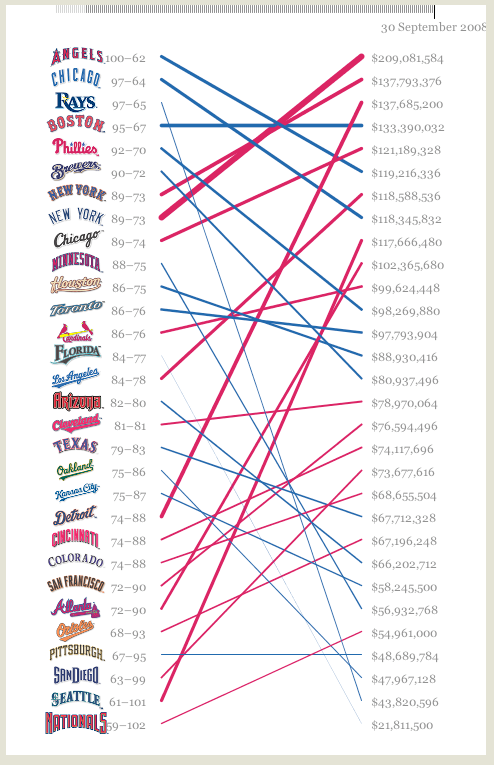I would consider your points valid
if the Red Sox hadn't offered Teixeira eight years for $200 million. Theo Epstein threw the same bucketload of money at him that everyone else did. The Sox offer to Tex was only $1.5 million less per year than the Yankees' offer, and he makes less sense on the Sox than he does on the Yankees (positional depth, prospects, etc.).
Teixeira simply didn't want to play for the Sox -- quite possibly because of lingering resentment over how the Red Sox tried to torpedo him when he came up for the draft several years ago. We can bitch and moan and debate money all we want, but it's always going to come down to the management of a team. Until we get something close to a level playing field, management-wise, I don't expect we're going to see the big-spenders really take over. If we put, say, Oaklands's, Tampa's and Arizona's management teams in control of the Mets, Dodgers and Cubs, I think we'd be in better position to see where money would begin to control the sport.
There may come a time when the big-money teams truly rule over the rest, but it's not here yet. Yeah, teams like Oakland may need to rebuild relatively often, but because they have a good management team in place, the significant mistakes aren't nearly as likely to come, and that helps close the gap. Put Bill Bavasi, Ed Lynch, Ned Colletti, Allard Baird or Dave Littlefield in there and it's a whole different story. It's not about how much money you spend, it's how you spend it, as the following image shows:
This throws some things into perspective, such as how the top 6 teams all finished higher than their salary rank except for the dead-even Red Sox, and how 9 of the bottom ten (the exception being the other dead-even team, Pittsburgh) all overspent for their failure, most by an utterly absurd margin.


